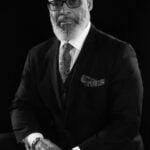In Part 2 of this series, I presented to you the rationale and research that support the premise of our collective prioritization of other identities over the identity of our community. Merriam Webster’s defines community as a unified body of individuals such as:
A: the people with common interests living in a particular area broadly.
B: a group of people with a common characteristic or interest living together within a larger society.
C: a body of persons of common and especially professional interests scattered through a larger society.
Dr. Claude Anderson, author of the book “Powernomics,” attempts to bring additional clarity to this definition. He asserts that a community is one that gets at least 95% of its quality-of-life needs met within itself, before going outside of its own for additional services. Dr. Anderson sharply states that without this component, we don’t have a community, just a place to sleep.
The state of our quality-of-life needs is directly correlated with the quality of our economic base, employment, entrepreneurship and education. As it pertains to the Black “community,” we receive the majority of these services from external sources other than our own. Is it sound logic to expect other cultural and racial groups to effectively create and maintain these conditions for us? If we don’t spend money with our own, create our own businesses and hire our own, educate our own, why should we expect those outside of our community to do it for us?
How has the Black community’s dependence on others for our basic needs worked out so far? Look at the current issues associated with this question:
- The education system we send our children to is a feeder for the school-to-prison pipeline. In addition, it is afflicted by the false belief of critical race theory in schools, and the banning of books on anything about our history that makes others feel uncomfortable.
- The Black unemployment rate remains at twice the rate of whites regardless of either political administration, in both good times and bad.
- The Black racial demographic collectively is a $1.5 trillion consumer group, the wealth of the fourth largest nation in the world. Yet the Black dollar circulation stays within our community for only six hours or less. We are the only demographic practicing economic integration. Think about it.
The point of this series on examining the importance and prioritization of our identities is this: We trust others outside of our community more than we trust each other. When we speak of the Black vote, that is a collective voting block, a community if you will. Isn’t it possible that this collective lack of trust within our community significantly depresses our collective voting power? In my work as a racial deconstructionist, I developed a tool for self-reflection toward the goal of addressing issues such as the one in this topic of discussion. It is called the Cultural Trust Survey. I believe it will assist you in assessing your own behaviors that may be contributing to the qualitative state of our community. Rate yourself on each question from 1 to 10 (low to high). This survey is for anyone of either racial group (white, Black or biracial) and for any cultural group (Asian, Hispanic, African, German, etc.) It should provide you insight into your own thoughts, feelings, and beliefs as it pertains to your own racial or cultural group.
Cultural Trust Survey
I trust my members of my own race or culture over other racial or ethnic groups.
1 2 3 4 5 6 7 8 9 10
I prefer to spend the majority of my income supporting my own cultural business institutions (e.g., food, entertainment, clothing and general services) over other racial or cultural groups’ services and products.
1 2 3 4 5 6 7 8 9 10
I receive better quality services from members of my own race or culture.
1 2 3 4 5 6 7 8 9 10
I currently take financial management and investment direction from a member(s) of my own race or culture.
1 2 3 4 5 6 7 8 9 10
I prefer and view members of my own race or culture as the best potential for intimate and healthy relationships over other racial or cultural groups.
1 2 3 4 5 6 7 8 9 10
I receive all of my academic/educational instruction from my own racial or cultural institutions.
1 2 3 4 5 6 7 8 9 10
I prefer my children attend culturally relevant academic/educational institutions where the majority of the teachers and staff look like me and my children.
1 2 3 4 5 6 7 8 9 10
I am as knowledgeable about other racial or cultural group’s contributions to my country’s growth as I am my own.
1 2 3 4 5 6 7 8 9 10
George Middleton is a therapist and author promoting a series of works addressing race and mental health. For more information contact him at gmmusique@cs.com.







